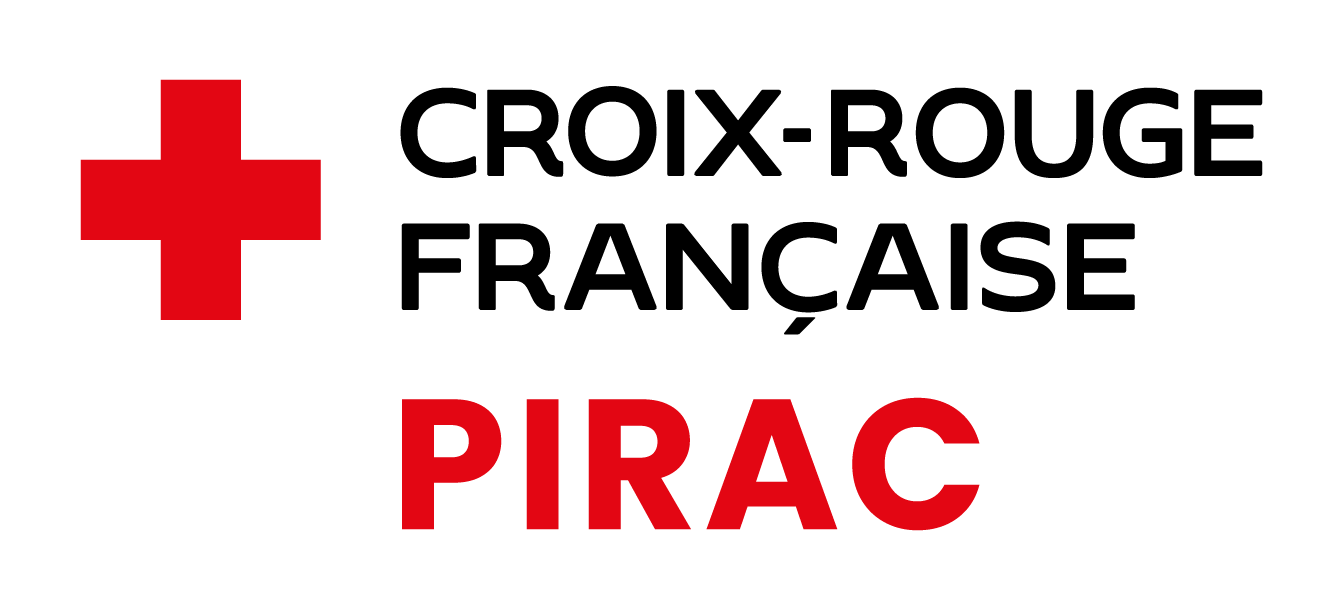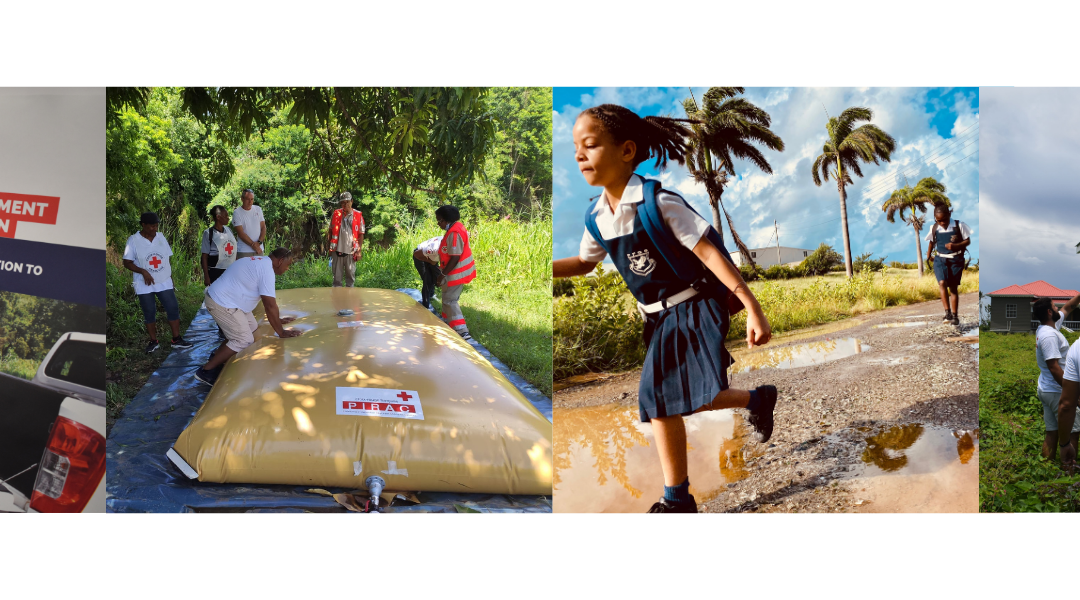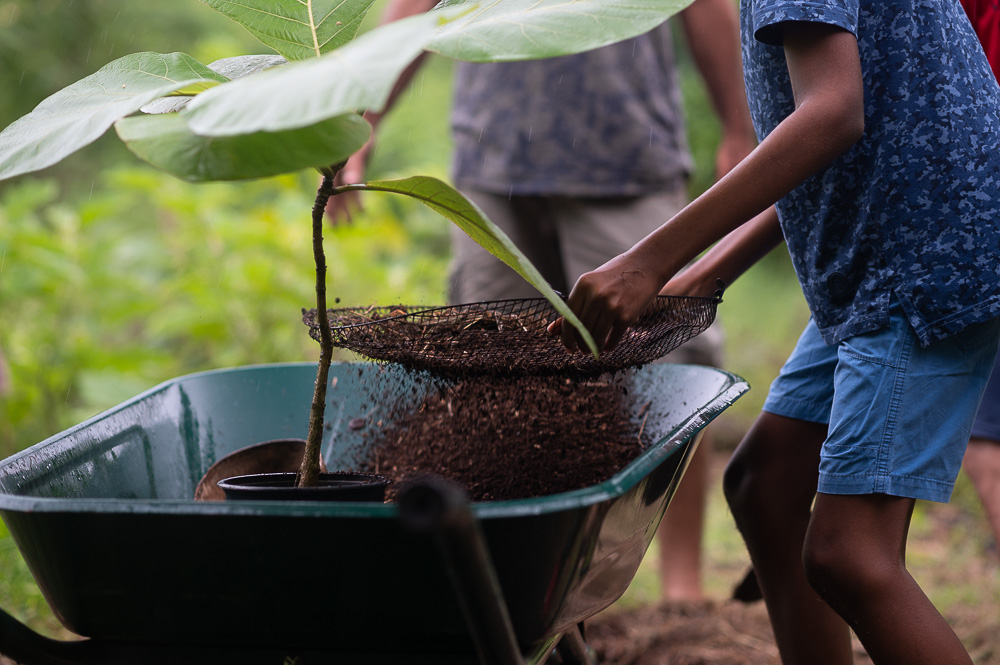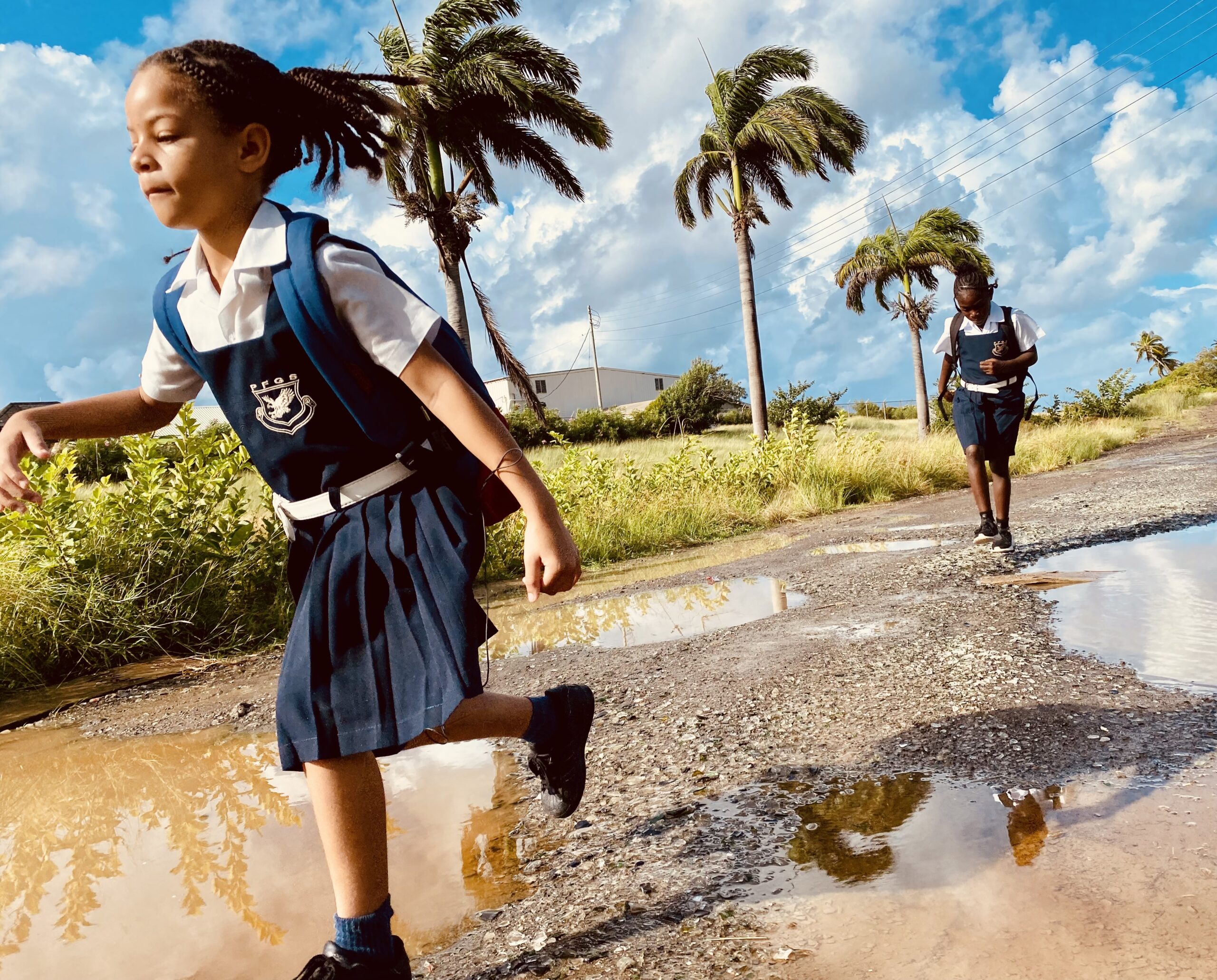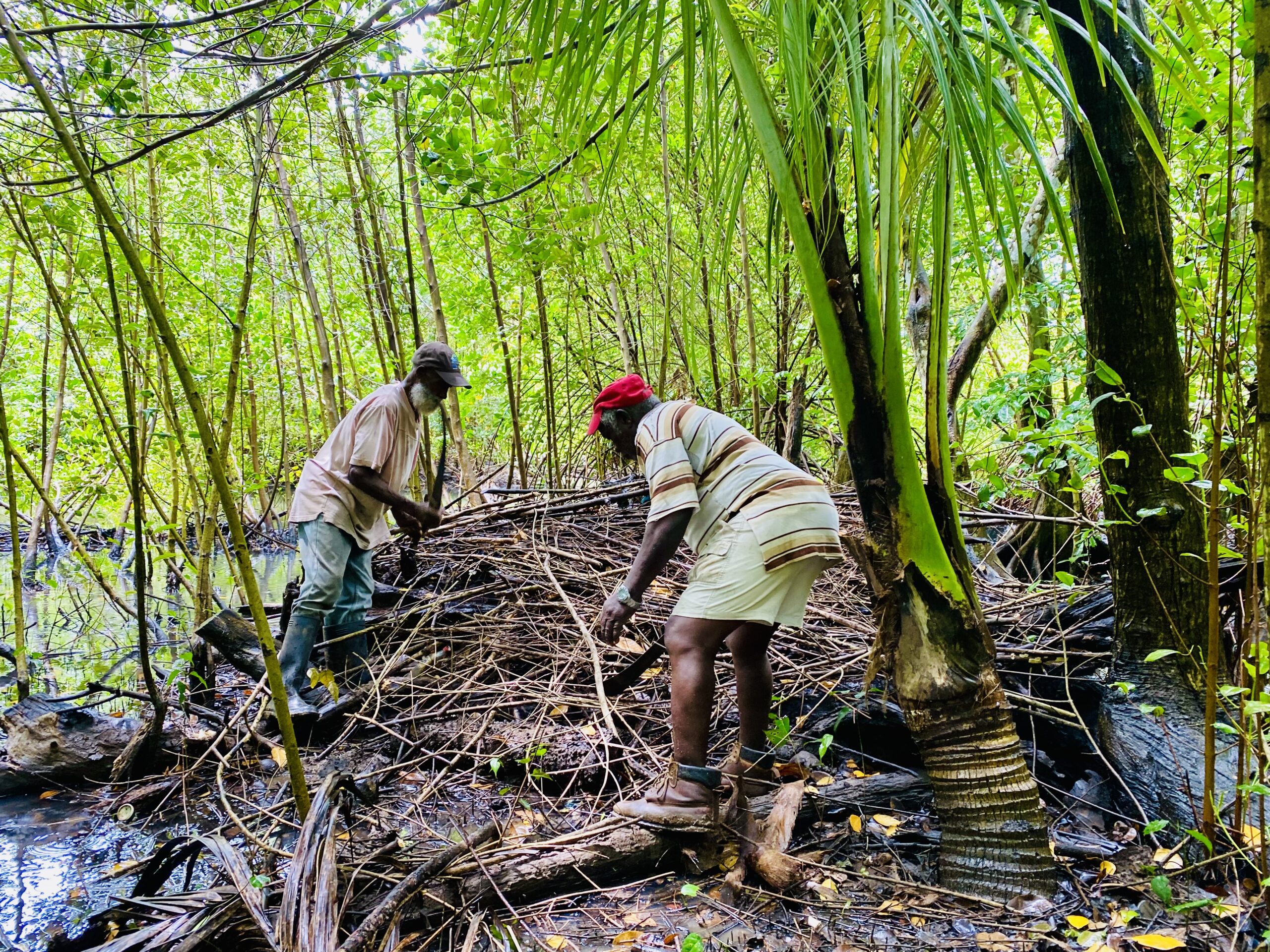On November 7, PIRAC organized a workshop for its partners to take stock of phase 1 of the READY 360° project and share the objectives of phase 2 of the READY 360/3 Oceans program. This new direction is in line with the continuity of the first phase: to strengthen citizens’ prevention, preparedness and response capacities in the face of disaster risks in the Caribbean, by positioning them as key players in local resilience. It is also based on regional cooperation focused on risk management and the transmission of new intervention approaches. A look back at the program’s objectives and the highlights of the webinar.
READY 360°/3 Oceans program objectives and priorities
Intense climatic events, rising temperatures, rising sea levels and saltwater intrusion… the Caribbean territories face major development challenges in terms of disaster risk. Because of their geographical location and particular geological and topographical features, these territories are on the front line when it comes to the effects of climate change.
“Preparing for the consequences of climate change
in the Caribbean is not an option, but a necessity”
Jérémie Sibeoni, PIRAC Head of Delegation
Faced with this situation, PIRAC initiated phase 1 of the READY 360° project in 2023, with financial support from INTERREG Caribbean, co-financed by the French Development Agency (AFD) in partnership with the OECS and CDEMA. The main objective is to strengthen the capacity of Caribbean territories to prevent, prepare for and respond to natural hazards.
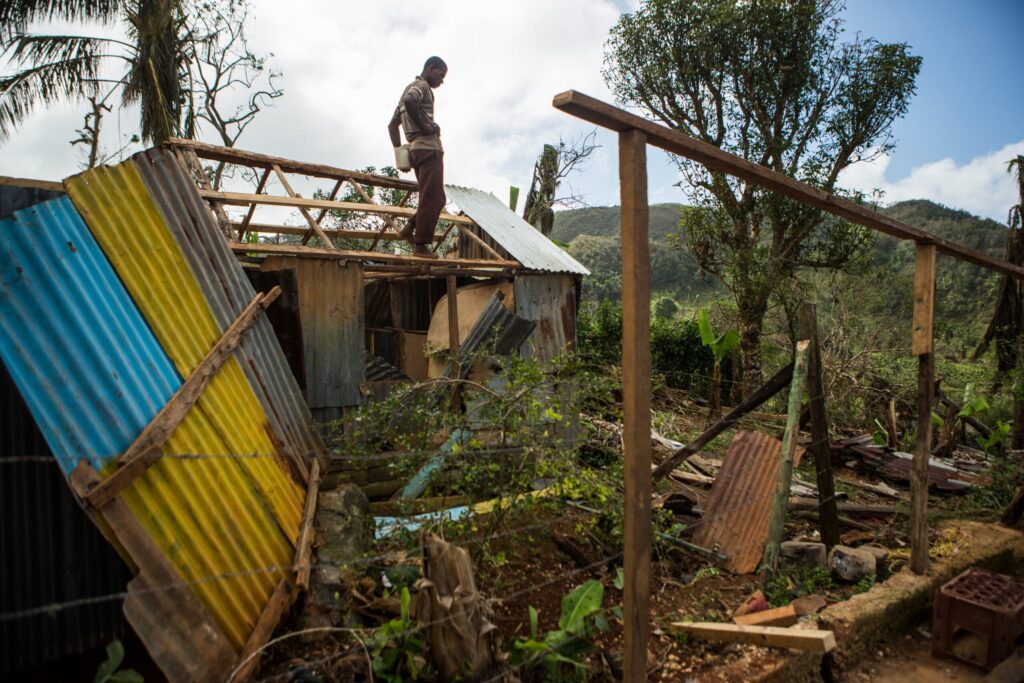
Within a year, phase 1 of the project had achieved its objectives through the implementation of various activities, detailed later in the article. Since January 2024, phase 2 has been launched, with objectives still aligned with those of phase 1. Nevertheless, particular attention is being paid to a greener, more eco-responsible, inclusive and innovative approach to the actions carried out, in response to the challenges of today’s natural and climatic hazards.
Phase 2 has four main objectives:
![]() Support regional cooperation between institutions, National Societies and disaster risk management (DRM) stakeholders, in order to promote an innovative, concerted and effective approach;
Support regional cooperation between institutions, National Societies and disaster risk management (DRM) stakeholders, in order to promote an innovative, concerted and effective approach;
![]() Strengthen operational capabilities to anticipate, prepare for and respond to disasters and crises, while emphasizing more eco-responsible, inclusive and sustainable practices.
Strengthen operational capabilities to anticipate, prepare for and respond to disasters and crises, while emphasizing more eco-responsible, inclusive and sustainable practices.
![]() Improve public information, awareness and preparedness for disasters and crises, making citizens the primary actors in local resilience.
Improve public information, awareness and preparedness for disasters and crises, making citizens the primary actors in local resilience.
![]() Develop technical studies and research on disaster management in collaboration with experts and academics to strengthen the foundations of risk management.
Develop technical studies and research on disaster management in collaboration with experts and academics to strengthen the foundations of risk management.
This new phase is financially supported by INTERREG Caraïbes, Agence française de développement and the Fondation CMA-CGM, in partnership with OECS et la CDEMA.
Successful phase 1: PIRAC continues its efforts in phase 2
From the outset of phase 1, PIRAC teams worked closely with the National Societies of the various Caribbean territories: Antigua and Barbuda, Saint Kitts and Nevis, Dominica, Saint Lucia, Saint Vincent and the Grenadines, Grenada, Guadeloupe and Martinique (joined in phase 2 by the Dominican Republic). Reinforced regional coordination with the support of institutional partners (CDEMA, OECS, IFRC) and regional and local bodies (including National Societies, local authorities, the Antilles General Staff and Armed Forces, regional health agencies, etc.). This dynamic has enabled the implementation of various activities meeting the objectives mentioned earlier in the article.
![]() The development of regional cooperation between actors through the strengthening of the regional framework (“International Disaster Response Laws Rules and Principles”) and improved institutional and technical collaboration in DRM (Risk and Disaster Management);
The development of regional cooperation between actors through the strengthening of the regional framework (“International Disaster Response Laws Rules and Principles”) and improved institutional and technical collaboration in DRM (Risk and Disaster Management);
![]() Strengthening the capacity of the various players to prepare for risks, with support from the IFRC’s World First Aid Reference Center, and setting up emergency preparedness and response activities dedicated to National Societies (deployment of a mobile desalination unit with dedicated training in Saint-Vincent and the Grenadines, diagnostics of needs in terms of stock layout and equipment, etc.). Phase 2 also integrates the Protection, Gender, Inclusion approach (production of a summary of the regional and national ERP framework, development of action plans with the National Societies concerned, etc.).
Strengthening the capacity of the various players to prepare for risks, with support from the IFRC’s World First Aid Reference Center, and setting up emergency preparedness and response activities dedicated to National Societies (deployment of a mobile desalination unit with dedicated training in Saint-Vincent and the Grenadines, diagnostics of needs in terms of stock layout and equipment, etc.). Phase 2 also integrates the Protection, Gender, Inclusion approach (production of a summary of the regional and national ERP framework, development of action plans with the National Societies concerned, etc.).
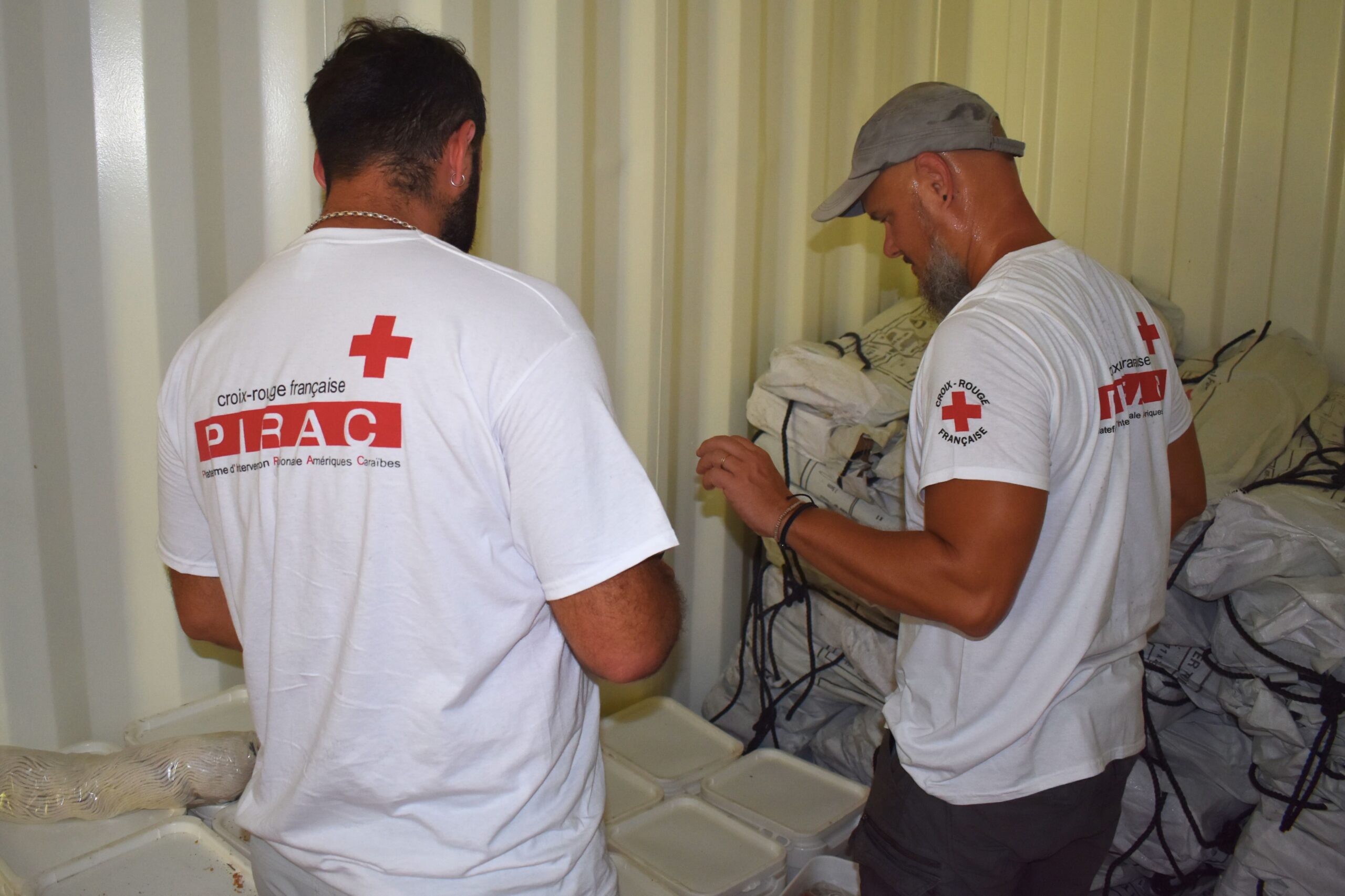
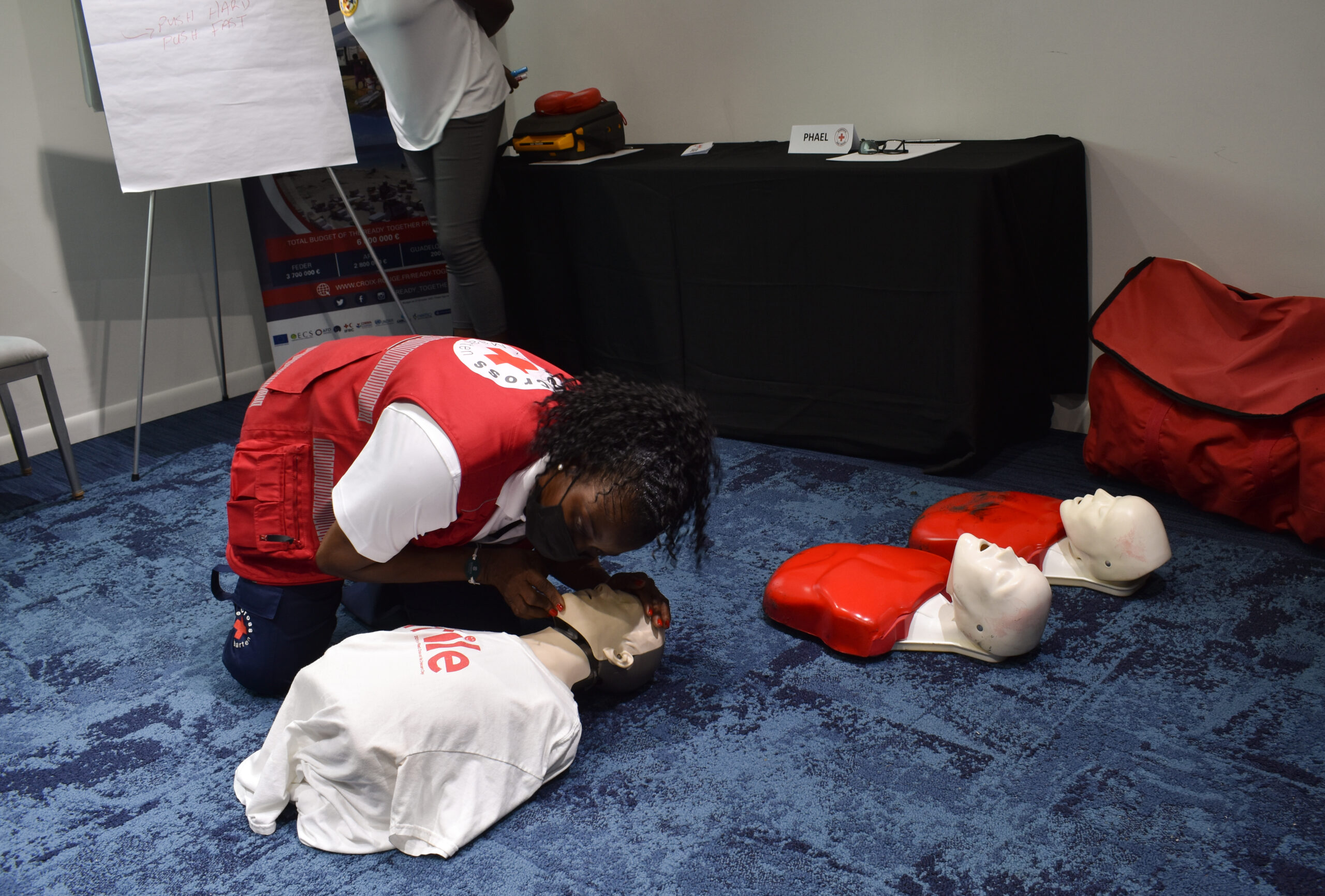
![]() Positioning citizens as actors in prevention and change, through a regional public awareness campaign, the creation of an information portal on natural hazards, adapted to the Caribbean context, raising awareness of risk culture in schools, and preparing businesses for these challenges.
Positioning citizens as actors in prevention and change, through a regional public awareness campaign, the creation of an information portal on natural hazards, adapted to the Caribbean context, raising awareness of risk culture in schools, and preparing businesses for these challenges.
![]() The provision of technical expertise in GRC with the design of two environmental studies: one on waste management in emergency operations, the other on the analysis of the carbon footprint of modes of transport for humanitarian goods. At the same time, a study is being carried out into the feasibility of a Master’s degree in GRC.
The provision of technical expertise in GRC with the design of two environmental studies: one on waste management in emergency operations, the other on the analysis of the carbon footprint of modes of transport for humanitarian goods. At the same time, a study is being carried out into the feasibility of a Master’s degree in GRC.
Phase 2 in action: focus on a few key initiatives
- As part of the drive to strengthen regional cooperation, PIRAC will provide financial support to the IFRC for the organization of a second regional virtual exhibition. The aim is to raise public awareness of international disaster response law. Through videos and interviews, this exhibition will showcase recent experiences of crisis preparedness and management in the Caribbean, with testimonials from Red Cross National Society volunteers on the challenges encountered in the field in relation to legislation in crisis situations.
To discover or rediscover the teaser for the 2023 exhibition:
- Following the success of the previous campaign, PIRAC is launching a new regional public awareness campaign scheduled for April 2025. The aim remains the same: to raise public awareness by encouraging people to take action to reduce risks, while deepening understanding of climatic phenomena and their impacts.
Multimedia actions “The climate is changing…and you?” (campaign from the former Ready Together program)
As a reminder, the last campaign generated: 10 videos, 10 radio spots, nearly 170,000 views of the online video spots, 144 television appearances in the territories involved (Antigua & Barbuda, Dominica, Guadeloupe, Martinique, Saint Lucia, Saint Vincent & the Grenadines), and coverage on 12 radio channels.
- Noting the lack of shared online resources on disaster risk management (DRM) topics aimed at the general public, PIRAC has chosen to join forces with OECS and CDEMA to design a regional information portal, specifically adapted to the Caribbean context. The portal will feature a range of practical information on natural hazards, related protective measures, climate change, nature-based solutions and more. Its launch is scheduled for June 2025.
Phase 2 of the READY 360°/3 Oceans program will run until the end of 2026, with numerous activities planned to strengthen the resilience of Caribbean territories. Collaboration with National Societies and all partners will be intensified, encouraging the pooling of experience and knowledge for more effective risk management.
